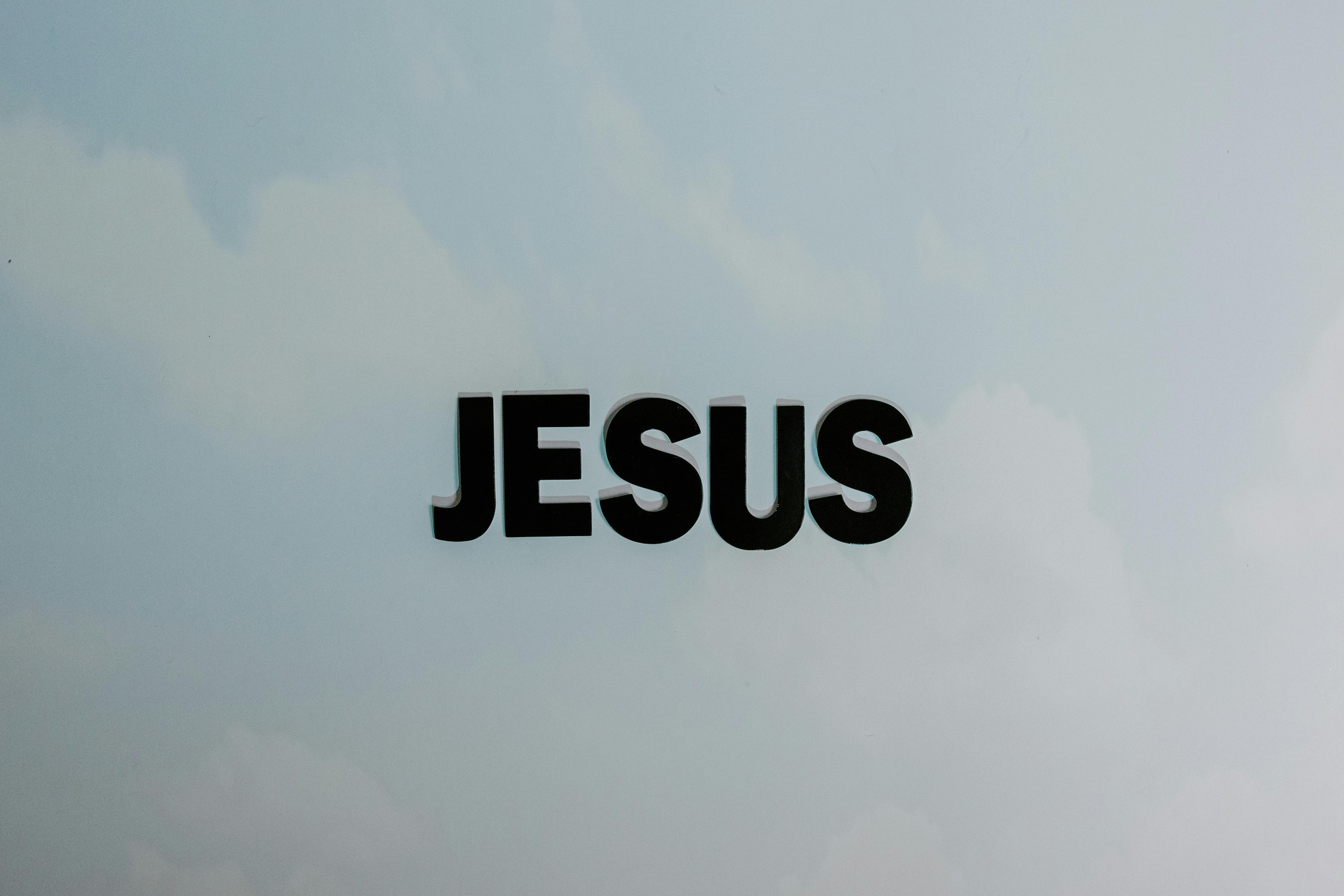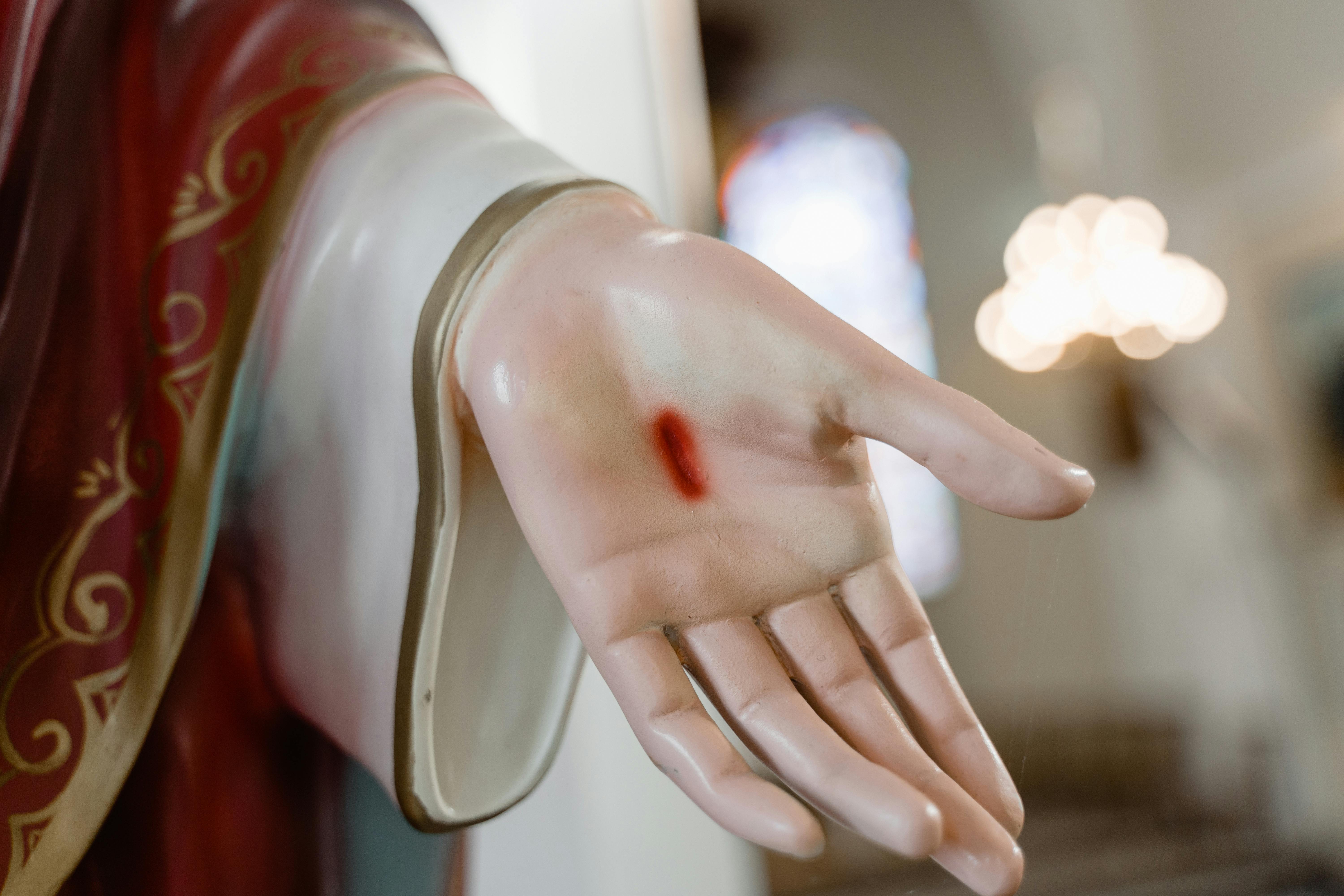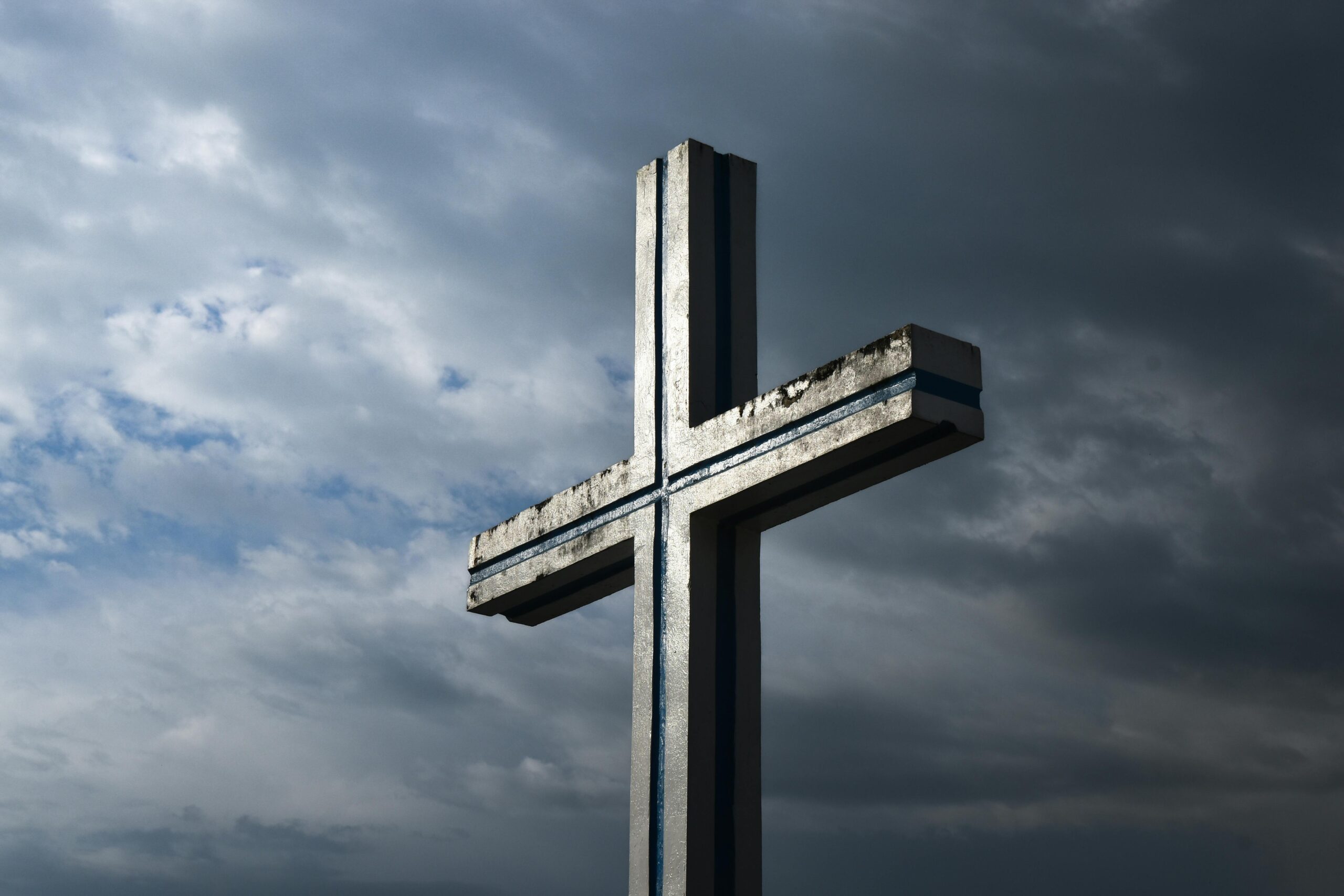Alright, so you ever wonder whats the real difference between Catholic vs Christian beliefs? I mean, people throw those terms around like they the same thing, but trust me, they aint. Some folks say all Catholics are Christians, but not all Christians are Catholics — confusing much? Its like comparing apples to fruit, ya know? The whole debate about difference between Catholic and Christian religion can get pretty messy, and honestly, who got the time to figure it all out? But hey, if you curious about why some people go to Mass and others just read the Bible at home, this is the place to start. Some say Catholics follow traditions more than the Bible, yet Christians say they just stick to scriptures — but then again, isnt that a bit of a generalization? Plus, the history behind Catholic vs Christian denominations is tangled like a spaghetti junction, with popes, councils, and all that jazz. Whether you a devout believer or just someone who want to understand what’s what, the lines between Catholicism and Christianity beliefs dont always clear cut. So, buckle up, cause this ride through faith and doctrine might just surprise you — or maybe leave you more confused, who knows?
7 Key Differences Between Catholics and Christians You Didn’t Know

When we talks about catholic vs christian, many peoples gets confuse because both terms are often use interchangeably, but they actually represent different concepts. To start with, christian is a broad term that includes anyone who believes in Jesus Christ as their lord and savior. While catholic is a specific branch of christianity, which have its own traditions, beliefs, and practices that sets it apart from other christian groups.
Understanding The Basics: Christian and Catholic
| Aspect | Christian | Catholic |
|---|---|---|
| Definition | Followers of Jesus Christ | Largest branch of Christianity |
| Beliefs | Jesus Christ is savior | Jesus Christ and the authority of the pope |
| Bible Version | Various versions used by different groups | Catholic Bible includes Deuterocanonical books |
| Worship Practices | Varies widely | Structured mass, sacraments, veneration of saints |
| Church Leadership | Diverse leadership styles | Pope as head of the Church |
In simple words, all catholics are christian but not all christians are catholics. This is one of the common misunderstanding when people debates about catholic vs christian differences.
Core Beliefs Differences in catholic vs christian debate
To understand the catholic vs christian beliefs differences, one need look deeper into doctrines and theology that each group follows. Christians broadly believe in the Trinity, salvation through Jesus Christ, and the importance of the Bible. Catholics agree with these but adds more layers such as the authority of the pope, the importance of tradition, and the seven sacraments.
- Christians (non-catholics) often emphasize salvation by faith alone.
- Catholics believe in faith and works together as necessary for salvation.
- The concept of purgatory is accepted in catholicism but mostly rejected by other christian denominations.
Table: Key Theological Differences in catholic vs christian beliefs
| Topic | Catholic View | Other Christian Views |
|---|---|---|
| Authority | Pope is the supreme earthly authority | Bible is the sole authority (Sola Scriptura) |
| Sacraments | Seven sacraments (e.g., Eucharist, Baptism) | Two sacraments or ordinances usually (Baptism, Communion) |
| Saints and Mary | Veneration of saints and Mary, prayers for intercession | Generally no veneration or prayers to saints |
| Salvation | Faith and works necessary | Faith alone sufficient |
Practical Insights: Worship and Practices
One of the most visible differences when you attend a catholic church versus a protestant one (a common christian group) is the style of worship. Catholic mass is very structured with rituals, incense, bells, and formal prayers. While many christian churches (especially evangelical ones) tend to have more informal, spontaneous services with contemporary music.
Here is a quick compare list of worship differences seen in catholic vs christian worship styles:
- Catholic mass includes the Eucharist or communion as the central part of the service.
- Many christian churches also celebrate communion but frequency and meaning may vary.
- Catholics use statues and icons in their churches, which some christian groups avoid.
- The role of priests in catholicism is more formal and hierarchical compared to pastors or ministers in other christian groups.
Historical Context in catholic vs christian split
The division between catholic and other christian groups started prominently during the Protestant Reformation in the 16th century. Martin Luther, a german monk, challenged some catholic teachings and practices, leading to the birth of protestant denominations. This history is important to understand why there are so many differences and sometimes tension between catholic and christian groups.
| Timeline Event | Description |
|---|---|
| Early Christianity | Unified church under catholic leadership |
| 1054 AD – Great Schism | Split between Eastern Orthodox and Roman Catholic Church |
| 1517 AD – Protestant Reformation | Martin Luther’s 95 Theses challenges catholic doctrines |
| Post Reformation | Many christian denominations emerge |
Common Misconceptions about catholic vs christian
Many peoples think catholic is different religion than christianity, but this is not true. Catholicism is a branch within christianity. Sometimes the term “christian” is used by protestant groups to distinguish themselve from catholicism, which adds to the confusion.
Another misconception is about the worship of Mary and saints. Catholics do not worship Mary as a god but honor her as the mother of Jesus. This nuance is often lost in popular discussions about catholic vs christian beliefs.
Quick Reference Sheet: Catholic vs Christian Keywords
| Keyword | Usage |
|---|---|
| catholic vs christian | General comparison of the two terms |
| catholic vs christian differences |
Catholic vs Christian Beliefs: What Sets Them Apart in 2024?

When we talks about catholic vs christian, many peoples get confused because these terms sometimes used interchangeably. But actually, there are some big differences between them which worth exploring. First, its important to understand that all Catholics are Christians, but not all Christians are Catholics. This distinction often gets lost in everyday conversations and it leads to many misunderstanding.
What is Christianity?
Christianity is a broad religion based on the life and teachings of Jesus Christ. It includes many denominations, such as Protestants, Orthodox, and of course Catholics. Christianity as a whole believes in the Bible as the sacred text, although different groups interpret it differently. The core belief is that Jesus is the Son of God and Savior of humanity.
| Aspects | Christianity |
|---|---|
| Founder | Jesus Christ |
| Sacred Text | Bible |
| Belief in Jesus | Son of God, Savior |
| Major Denominations | Catholic, Protestant, Orthodox |
One thing to notice is that Christianity covers a wide range of beliefs and practices. For example, Protestants and Catholics have different approach to worship, sacraments and church authority.
What is Catholicism?
Catholicism is a branch of Christianity, and it is the largest Christian denomination worldwide. It is led by the Pope, based in Vatican City. Catholics place a strong emphasis on tradition and the authority of the Church. They also believe in the seven sacraments, including the Eucharist, Baptism, and Confirmation.
The Catholic Church teaches that the Pope is the spiritual successor to Saint Peter, whom Jesus appointed as the head of his disciples. This belief in papal authority is one of the key differences in catholic vs christian debates, especially with Protestant groups who reject the Pope’s authority.
| Catholic Beliefs | Description |
|---|---|
| Pope | Leader of the Catholic Church |
| Sacraments | 7 Sacraments including Eucharist, Baptism |
| Tradition | Important, alongside the Bible |
| Saints and Mary | Venerated and prayed to for intercession |
It’s also worth noting that Catholics pray to saints and Mary, the mother of Jesus, which is a practice that many other Christian groups find strange or unnecessary.
Key Differences Between Catholic and Other Christian Beliefs
To better understand the catholic vs christian distinction, here is a list of some main differences:
- Authority: Catholics accept the authority of the Pope and Church traditions; many other Christians rely solely on the Bible.
- Sacraments: Catholics have 7 sacraments; most Protestant denominations recognize only two (Baptism and Communion).
- Worship Practices: Catholic Mass involves rituals and liturgy that differ from many Protestant services.
- View on Mary and Saints: Catholics venerate Mary and the saints; most Protestants do not.
- Salvation: Catholics believe faith and works are both important for salvation; many Protestant groups emphasize faith alone.
Visual Comparison Table: Catholic vs Christian (Protestant Focus)
| Feature | Catholicism | Protestant Christianity |
|---|---|---|
| Leadership | Pope | No central human authority |
| Number of Sacraments | Seven | Two (mostly) |
| Bible and Tradition | Bible + Church Tradition | Bible alone (Sola Scriptura) |
| Role of Mary/Saints | Veneration and prayers | Generally rejected |
| Salvation | Faith + Works | Faith alone (Sola Fide) |
Practical Insights for Understanding Both
If you are looking at catholic vs christian from a personal perspective, here are some points to consider:
- History matters: Catholicism has a rich, long history dating back to the early church, whereas many Protestant groups emerged later during the Reformation.
- Cultural influence: Catholic traditions influence art, music, and holidays globally.
- Community and worship style: Catholic churches often have more formal liturgies, while Protestant churches may have more contemporary worship.
- Scripture interpretation: Catholics believe the Church guides how the Bible should be understood, unlike many Protestant groups who rely on individual interpretation.
Common Misconceptions About Catholic and Christian Differences
| Misconception | Reality |
|---|---|
| Catholics are not Christians | Catholics are Christians, a branch of them |
| Protestants don’t believe in Jesus | All Christians believe Jesus is the Savior |
| Catholics worship idols | Catholics venerate, but worship God alone |
| Salvation only by faith | Catholics believe faith and action matter |
Final Thoughts
Knowing the differences between catholic vs christian can
Exploring Catholic vs Christian Practices: Which Faith Aligns With You?

When we talk about catholic vs christian debates, many people get confuse cause they think these two are the same thing. But, in reality, not everyone who is Christian is catholic, and not every catholic consider themselves separate from Christianity. This can be very tricky to understand, specially when you hear words like Protestant, orthodox, or catholic thrown around a lot. So, let’s dive deeper in this topic to get a better understanding.
First, we should clarify what does the word “Christian” means. A Christian is anyone who believes in Jesus Christ as their savior and follow his teachings. There are many different groups inside Christianity, such as Protestants, Catholics, and Orthodox. So, in simple terms, catholic is a branch of Christianity, but not all Christians are catholic. Confusing, right?
| Term | Definition | Example |
|---|---|---|
| Christian | A person who follows Jesus Christ | Protestant, Catholic, Orthodox |
| Catholic | A member of the Roman Catholic Church | Pope, Catholic priests |
| Protestant | Christians who broke away from the Catholic Church | Baptists, Methodists |
One of the main differences between catholic vs christian (especially Protestant Christians) is the authority they follow. Catholics believe that the Pope is the ultimate authority and the Church tradition is very important. Protestants, on the other hand, believe in “Sola Scriptura”, which means the Bible alone is the authority. This sometimes causes big arguments between the two groups cause each thinks their way is correct.
Here is a quick list that shows some of the main differences:
- Catholics have seven sacraments, Protestants usually only two (Baptism and Communion).
- Catholics venerate saints and Mary, Protestants do not.
- The Catholic Church has a very hierarchical structure, Protestants have more decentralized leadership.
- Catholics believe in transubstantiation in Communion, Protestants have a symbolic interpretation.
Now, if we look at the long history of these groups, Catholicism is the oldest, tracing back to the time of Jesus and the apostles. The word “catholic” means “universal,” and they see their church as the one true church. Protestantism started in the 16th century with Martin Luther, who wanted to reform some Catholic practices. This caused the great split in Christianity.
In the table below, you can see some key historical moments in catholic vs christian context:
| Year | Event | Importance |
|---|---|---|
| 33 AD | Crucifixion of Jesus Christ | Foundation of Christianity |
| 313 AD | Edict of Milan | Christianity legalized in Rome |
| 1054 | The Great Schism | Split between Catholic and Orthodox Church |
| 1517 | Martin Luther’s 95 Theses | Start of Protestant Reformation |
From a practical standpoint, if you want to understand the differences between catholic vs christian beliefs, attending services or reading scriptures from both traditions can help. For example, Catholic mass includes rituals that have been practiced for centuries, including the Eucharist, whereas Protestant services might focus more on preaching and hymn singing.
It’s also interesting to note some cultural aspects. Catholicism often involves more ritual and symbolism, like rosaries, statues, and incense. Protestants tend to focus more on personal relationship with God and Bible study. This means, sometimes, people are attracted to one tradition over the other based on their personality or background.
Here is a quick comparison of worship styles:
| Aspect | Catholic Worship | Protestant Worship |
|---|---|---|
| Rituals | Very formal, includes sacraments | Less formal, focus on sermons |
| Music | Traditional hymns, choir | Contemporary worship songs |
| Language | Often Latin (historically) or vernacular | Usually vernacular |
| Role of Clergy | Priests as mediators | Pastors as teachers |
One question people often ask is: Why do Catholics pray to saints and Mary while Protestants do not? Catholics believe saints can intercede on their behalf, acting as spiritual friends in heaven, but Protestants believe only Jesus should be prayed to. This difference can be confusing or misunderstood by many people outside these traditions.
Another feature that separates catholic vs christian denominations is how they view salvation. Catholics believe faith and good works both are necessary for salvation, while many Protestants believe salvation comes through faith alone. This theological difference has caused much debate and even conflict over the centuries.
For those who want to explore more, here’s a list of famous Christian denominations under each group:
Catholic Denominations:
- Roman Catholic Church
- Eastern Catholic Churches
Protestant Denominations:
- Lutheran Church
How Catholicism Differs From Christianity: A Deep Dive Into Core Doctrines

When it comes to understanding the differences between Catholic vs Christian beliefs and practices, many people gets confused. Often, the terms are used interchangebly, but there are subtle yet important differences that should be know. Here, I will try to explain this topic in a way that anyone can understand, even if you are not very familiar with religious terminologies.
What is Christianity?
Christianity is a broad religion that includes numerous denominations. It is based on the life and teachings of Jesus Christ. All Catholics are Christians, but not all Christians are Catholics. Other major branches include Protestants, Orthodox Christians, and several smaller groups. You can think of Christianity as a big umbrella, and Catholicism is one of the largest sections under that umbrella.
| Key Facts About Christianity |
|---|
| Founded: About 2,000 years ago |
| Central Figure: Jesus Christ |
| Holy Book: Bible (Old and New Testament) |
| Main Beliefs: Salvation through Jesus, Trinity, Resurrection |
The term Catholic vs Christian differences explained often arise when people want to know what makes Catholicism unique compared to other Christian groups.
Understanding Catholicism
Catholicism is the largest Christian denomination worldwide. It traces its origins directly to the apostles, especially Peter, whom Catholics see as the first pope. The pope today is considered the spiritual leader of all Catholics. Catholicism places a strong emphasis on tradition, sacraments, and the authority of the Church’s teachings.
Some people thinks that Catholics worship Mary and the saints, but actually, Catholics venerate them, which means they honor and respect these holy figures. This is different from worship, which is reserved for God alone.
| Catholic Practices | Description |
|---|---|
| Mass | Central worship service including the Eucharist |
| Sacraments | Seven sacraments including baptism, confirmation, and marriage |
| Confession | Confessing sins to a priest for absolution |
| Veneration of Saints | Asking saints to intercede with God on behalf of people |
One of the most debated topics in catholic vs christian theology is the role of the sacraments and the authority of the Church. Protestants generally believe in only two sacraments (baptism and communion) and emphasize scripture over church tradition.
Comparing Beliefs: Catholic vs Protestant Christians
| Aspect | Catholic Beliefs | Protestant Beliefs |
|---|---|---|
| Authority | Bible + Church Tradition + Pope’s teachings | Bible alone (Sola Scriptura) |
| Salvation | Faith and good works | Faith alone (Sola Fide) |
| Communion | Transubstantiation (bread and wine become body and blood of Christ) | Symbolic or spiritual presence |
| Role of Mary | Highly honored, Mother of God | Generally respected, but not venerated |
| Confession | To a priest | Direct to God |
These differences lead to distinct ways of worshiping and living the faith. The difference between catholic and christian faiths is not just about rituals, but also about how they interpret the Bible and practice their beliefs in daily life.
Practical Insights For Those Curious About Catholic vs Christian Worship
- Attend a Catholic Mass and a Protestant service to see and feel the difference yourself.
- Note how priests and pastors lead the services differently.
- Observe how the sacraments are celebrated, especially communion.
- Listen to the sermons and hymns – the themes may vary.
- Try to understand the role of community and church authority in each setting.
Here is a simplified comparison of typical Sunday services:
| Feature | Catholic Mass | Protestant Service |
|---|---|---|
| Length | Usually 1 hour | 45 minutes to 1 hour |
| Structure | Very structured with readings, prayers, Eucharist | More flexible, often includes Bible teaching |
| Music | Traditional hymns and choir | Contemporary or traditional songs |
| Participation | Congregation responds to prayers | Congregation actively participates in singing and prayer |
Why People Confuse Catholic and Christian Terms?
Many people use “Christian” to mean Protestant only, forgetting that Catholics are Christians too. The confusion comes from cultural and historical reasons. For example, some countries are majority Catholic, while others are majority Protestant, which can affect how people use the words.
Also, when people googling “catholic vs christian differences” they often looking for clear cut answers but the reality is more complex. Understanding these differences requires a bit of history, knowledge of theology, and open mind.
Summary Table: Catholic vs Christian Key Differences
| Topic | Catholicism | Other Christian Denominations |
|---|---|---|
| Leader | Pope | Various (Pastors, Bishops) |
| Scripture | Bible + Tradition | Bible only |
| Salvation | Faith + Works | Faith only |
| Worship | Mass with Eucharist | Service with Communion |
| Saints | V |
Catholic vs Christian Identity: Understanding the Powerful Distinctions Explained

When it comes to faith and religion, many people often get confused about the difference between catholic vs christian. Its a common misunderstanding because Catholicism is actually a denomination within Christianity, but the distinction isn’t always clearly explained. In this article we will explore some of the key differences and similarities between these two, while also touching upon some interesting facts you might not knew before.
First, let’s clarify what it means to be a Christian. Christianity is a broad religion based on the teachings of Jesus Christ, who lived over 2,000 years ago. All Catholics are Christians, but not all Christians are Catholics. Other Christian denominations include Protestants, Orthodox Christians, and many more. So, catholic vs christian beliefs can sometimes overlap, but they also have unique practices and traditions.
Below is a basic comparison sheet to give you quick overview about some main points:
| Aspect | Catholic | Christian (Non-Catholic) |
|---|---|---|
| Authority | Pope is the supreme leader | No central leader, varies by denomination |
| Bible | Includes Deuterocanonical books | Usually excludes Deuterocanonical books |
| Sacraments | Seven sacraments including Eucharist | Usually fewer sacraments, varies widely |
| Virgin Mary | Highly venerated, Mother of God | Respected but less emphasis |
| Salvation | Faith and works together | Often faith alone emphasized |
You can see in the table that some differences are about authority and tradition. Catholics follow the Pope in Rome as the spiritual leader, which is a unique feature not found in other Christian groups. Meanwhile, many Protestant Christians rely on scripture alone (sola scriptura) for guidance.
Another point of interest is the role of the Bible in catholic vs christian scripture differences. Catholics include several books in their Old Testament that Protestants do not. These books are called Deuterocanonical by Catholics and Apocrypha by many Protestants. This means that the Bible you read in a Catholic church might be slightly different from the one used in a Baptist or Methodist church.
Lets list some of these extra books that Catholics have in their Bible but many other Christians do not:
- Tobit
- Judith
- Wisdom
- Sirach (Ecclesiasticus)
- Baruch
- 1 Maccabees
- 2 Maccabees
Understanding this can help when discussing Bible passages with people from different Christian backgrounds.
When talking about worship style, Catholics tend to have a very formal and ritualistic mass. The mass includes prayers, hymns, readings from the Bible, and the Eucharist (communion). The Eucharist is believed to be the actual body and blood of Christ, which is a doctrine called transubstantiation. This belief sets Catholics apart from many other Christian groups who see communion more symbolically.
In contrast, many Protestant services are less formal and may focus more on sermons and Bible study rather than ritual. This doesn’t mean one is better than the other, but it explains why some people prefer one style over another. This also ties into the difference in catholic vs christian worship practices.
Here is a quick list comparing worship elements:
Catholic worship:
- Use of statues and icons
- Confession to priest
- Formal prayers such as the Rosary
- Celebration of the seven sacraments
Protestant worship:
- Focus on Bible preaching
- Singing contemporary hymns or worship songs
- Communion as symbolic
- Direct prayer to God without priest intermediary
One practical insight for those confused about catholic vs christian holidays is that both celebrate many of the same holidays such as Christmas and Easter, but Catholics also observe numerous saints’ feast days and have a liturgical calendar that is more complex. Protestant churches often have simpler calendars but might emphasize different events or teachings.
There also some theological differences worth noting:
| Theology Aspect | Catholic View | Protestant View |
|---|---|---|
| Original Sin | Baptism removes original sin | Baptism as symbol, faith removes sin |
| Authority | Scripture + Tradition | Scripture alone (Sola Scriptura) |
| Mary | Immaculate conception, Assumption | Mary as virgin mother, no special status |
| Purgatory | Exists as purification before heaven | Generally rejected |
Its important to remember that Christianity is diverse, and within Protestantism itself, there are many different interpretations and practices.
If you want to explore catholic vs christian faith differences more deeply, attending services of different churches, or reading about their history might help. Both share core beliefs like the divinity of Jesus Christ, the resurrection, and the importance of love and
Conclusion
In summary, understanding the differences and similarities between Catholicism and Christianity as a whole allows for a deeper appreciation of the diverse expressions of faith within the Christian tradition. While Catholicism represents a distinct branch with specific doctrines, rituals, and a hierarchical structure centered around the Pope, Christianity encompasses a broader range of beliefs and practices shared by various denominations. Key distinctions such as views on the authority of the Church, the role of sacraments, and interpretations of scripture highlight the rich tapestry of Christian faith. Recognizing these differences fosters respect and dialogue among believers, encouraging unity without uniformity. Whether you identify as Catholic, Protestant, or another Christian tradition, exploring these perspectives can enhance your spiritual journey and promote greater understanding. We invite readers to continue exploring their faith with openness and curiosity, embracing the diversity that enriches the global Christian community.




